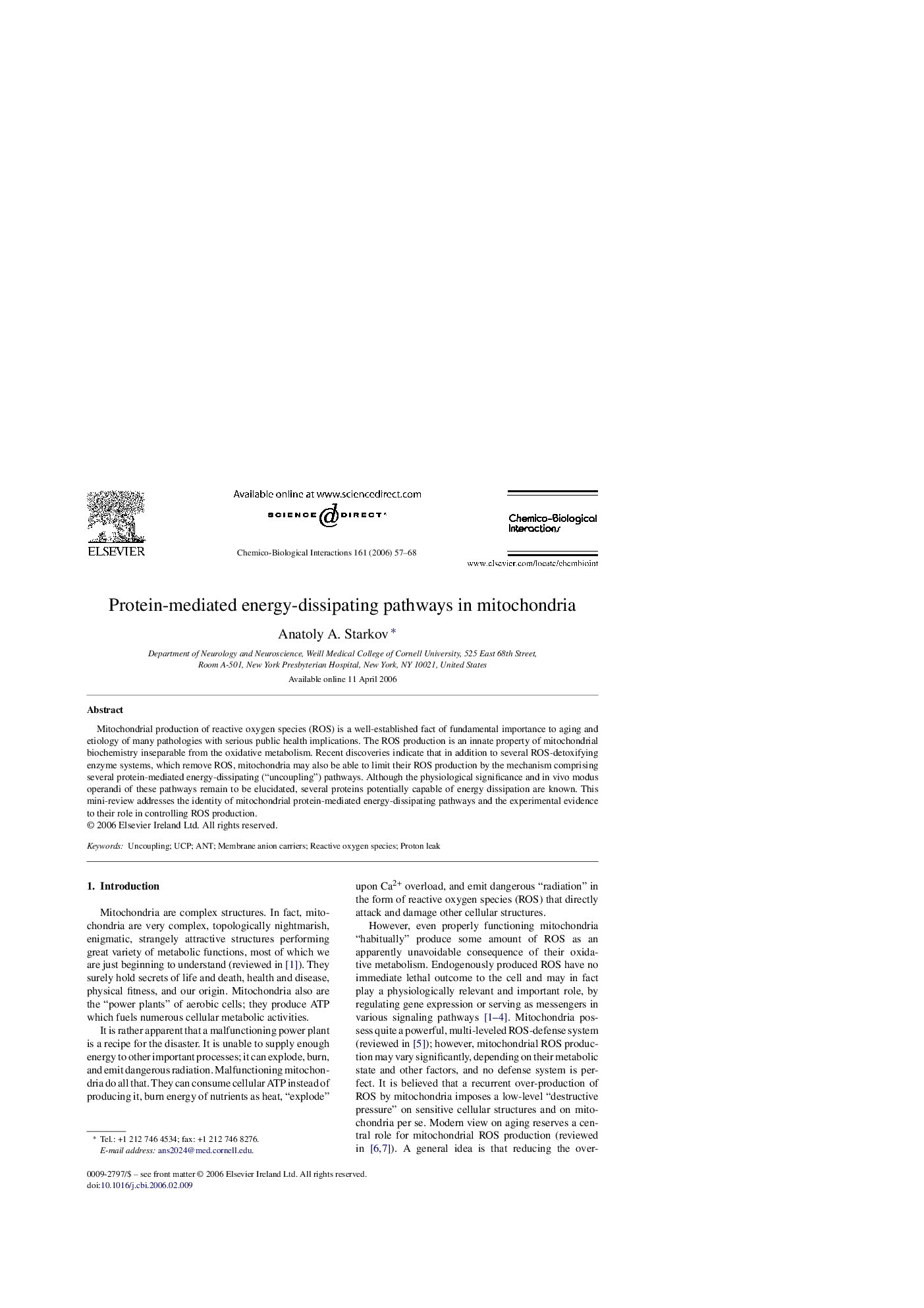| Article ID | Journal | Published Year | Pages | File Type |
|---|---|---|---|---|
| 2582706 | Chemico-Biological Interactions | 2006 | 12 Pages |
Mitochondrial production of reactive oxygen species (ROS) is a well-established fact of fundamental importance to aging and etiology of many pathologies with serious public health implications. The ROS production is an innate property of mitochondrial biochemistry inseparable from the oxidative metabolism. Recent discoveries indicate that in addition to several ROS-detoxifying enzyme systems, which remove ROS, mitochondria may also be able to limit their ROS production by the mechanism comprising several protein-mediated energy-dissipating (“uncoupling”) pathways. Although the physiological significance and in vivo modus operandi of these pathways remain to be elucidated, several proteins potentially capable of energy dissipation are known. This mini-review addresses the identity of mitochondrial protein-mediated energy-dissipating pathways and the experimental evidence to their role in controlling ROS production.
